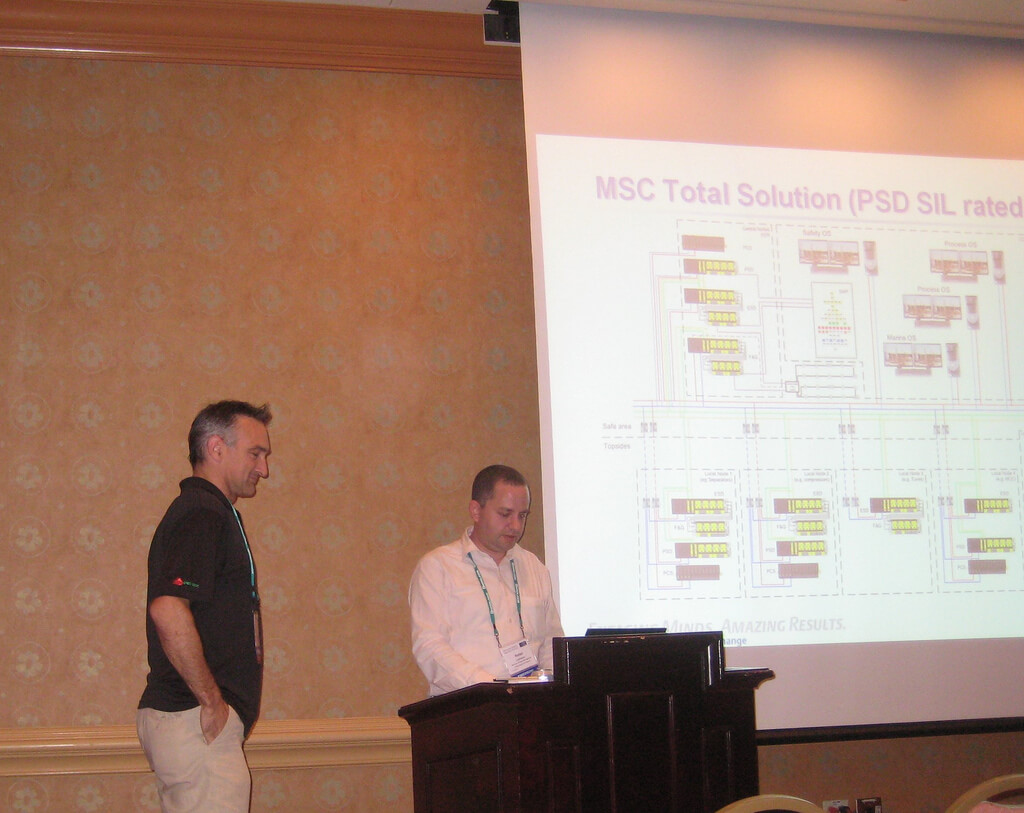Emerson’s Wim van Loon and Rafael Lachmann presented Modular Safety Concept (MSC) for Marine & Offshore projects and the Value Proposition at Emerson Exchange. Their abstract:
The current demands from the Marine and Offshore industry require low CAPEX, high amount of flexibility and increasingly faster execution of projects. Emerson offers the Modular Safety Concept as part of a Distributed ICSS allowing customers to meet these requirements and stay Class-compliant. What are the objectives, design constraints and solutions and what are the value adds to the project?
Wim kicked off the presentation describing a conversion Floating Production Storage/Offloading Systems (FPSO) project. In very simple terms, it’s converting existing tank vessels into FPSOs. This means building the production and storage facilities with the necessary process automation and safety instrumented system.
One of the issues with FPSO conversions is the capital expenditure risk in cost and schedule overruns. This can drive the return on investment below the set thresholds. Wim described areas where risks can be reduced throughout the project lifecycle. Fit for purpose design concepts contribute to a fast-track character. During the front-end engineering design (FEED) phase, if you split a larger project into parallel modules, you divide the risks where a schedule slippage in one module does not impact all the modules.
Wim described global project engineering standards with a library of standard DeltaV configurations and work processes. These standards are applied globally across all world areas to help provide resources for the process module development, no matter where the construction takes place. Complete wiring, loop test and functional check out of the modules can be done in parallel to minimize project risk.
Rafael described the modular safety concept (MSC). Here’s a complete application note on the modular safety concept. Distributed control has been available since the advent of the distributed control system. Distributed safety is required. The safety system applies to emergency shutdown (ESD), process shutdown (PSD), and fire and gas (F&G). Redundancy in all logic solver and power means redundant processor and redundant I/O and two sets of feeders that are individually UPS-backed up. The feeders are each capable of powering the entire ESD or F&G module node.
With the modular approach to both the automation and safety instrumented systems, the modules can be built and tested in parallel and hooked up once they are integrated with the vessel.
The distributed approach provides significant CAPEX and schedule risk reductions over traditional, centralized process control, emergency shutdown, and fire and gas systems.
Update: I’ve added a link above to a detailed application note on the modular safety concept.

